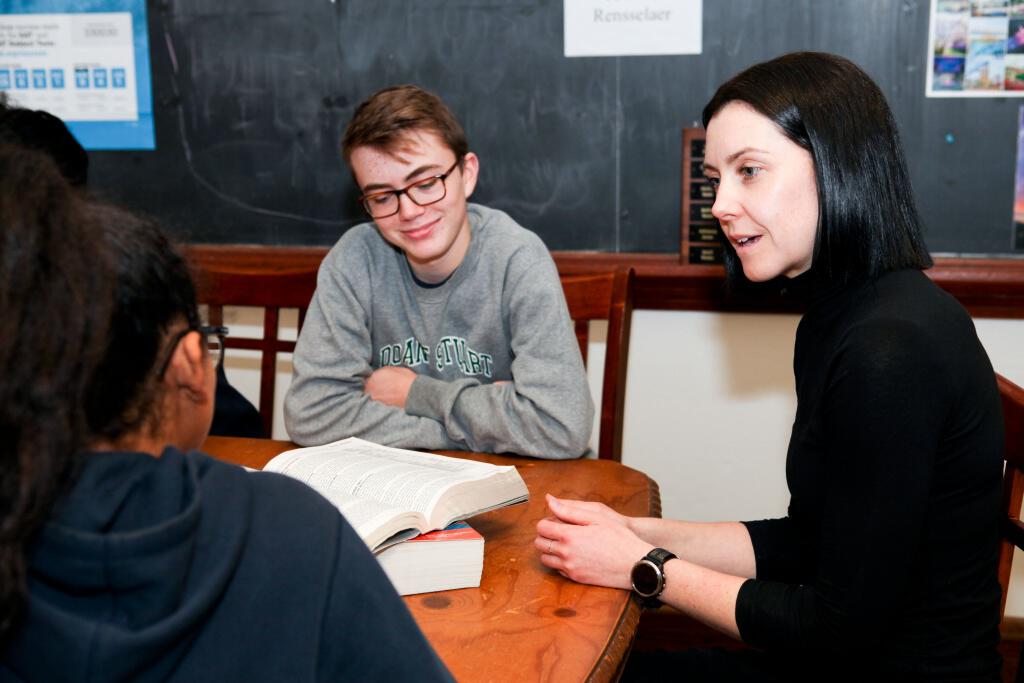Kathleen Bracken, our in-house college counselor, took some time to write about her experience in advisement and college admissions over the last year during COVID-19. Here are the 3 ways she saw college admissions change due to the pandemic:
Demonstrated interest looks different
My students hear me use the term “demonstrated interest” frequently. In college admissions, demonstrated interest is a description for all the touchpoints a student has with a college. Why does this matter? Engaging with schools is evidence to admission officers that you are a sincere applicant, and that, if offered a place in the class, you will choose to enroll.
Pre-pandemic, demonstrated interest meant in-person tours, information sessions, meetings at school, open houses and sometimes in-person interviews. Now? These opportunities are all virtual. I get it – looking at a screen just can’t compare to sitting in a dining hall and trying the waffle bar. It might be tempting for students to neglect the virtual offerings, but this is a mistake. Not only might you glean some helpful insight into campus culture, but your interactions with colleges are more closely tracked than ever. This year, Doane Stuart hosted over 100 virtual meetings with universities from all over the world. I emphasized to my students that their attendance was required, because it would ultimately benefit their applications.
Standardized test scores are now optional – so everything else counts more
Those who know me are well-aware of my distaste of the College Board, the organization that oversees the SAT. So I was elated to see the surge of colleges going test-optional. For a lot of students, this is great news. Most high schoolers would prefer to be evaluated based on their transcript, which measures trends in their grades over time and how they’ve challenged themselves at Doane Stuart. The SAT only measures one Saturday morning.
My word of caution, while I’m also celebrating the lessening influence of standardized tests, is that all the other components of an application are more important than ever. Grades, extracurricular involvement, your essay, and demonstrated interest (there’s that phrase again!) will be weighed more heavily in the absence of test scores.
A balanced college list is more important than ever before
The pandemic has brought uncertainty into all our lives, and this extends to colleges. At Doane Stuart, seniors are required to give me their college list during the second week of school. Sound early? It is, with good reason. I want to be sure that each senior applies to an appropriate mix of schools. There is no “magic formula,” and working at a small school means I can truly partner with families to come up with a balanced list. This means taking into account all the factors that matter to each student and family, to be certain that, at the end of the year, a senior will have great options from which to choose. Balancing a list means accepting a level of uncertainty and planning for some unknowns. If you follow admissions news, you’re reading stories about College X doubling their apps, but College Y noting fewer applications. A solid list will stand no matter the rapidly evolving application trends that may unfold. Seniors should be happy to attend any college to which they have applied. If this isn’t the case, it means some further refinement (and maybe reflection) is needed!
Want to know more about all things college? Send Kathleen a message – [email protected] or call her at 518-465-5222
Also, check out these pieces Kathleen was interviewed in on the topic of testing and the college admissions process:


Very interesting thanks for the update